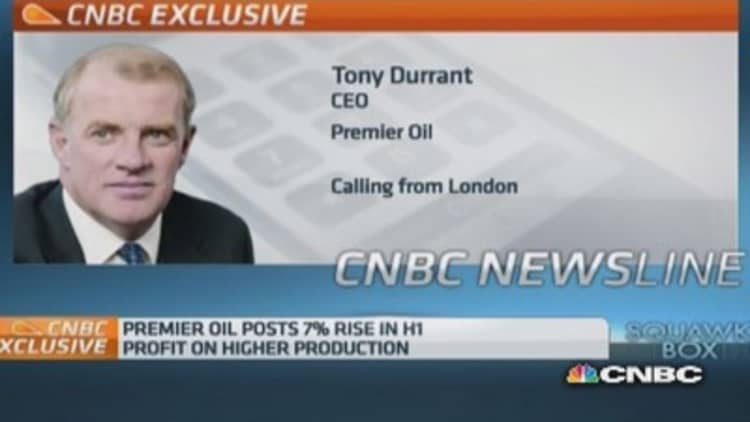Uncertainty regarding the result of this month's Scottish independence referendum has weighed on the British pound with currency analysts predicting a period of volatility for the currency.
Traders received a jolt on Tuesday morning when the results of a YouGov poll showed that the "no to independence" lead had collapsed to just six points.
Sterling held steady against the dollar on Wednesday morning at $1.6471 and is trading near five-month lows. It has now lost nearly a whole percentage point from its level of $1.6611 on Monday and has collapsed from the plus-$1.7 peaks it reached at the end of June.
Read MoreScotland's pro-independence leader steamrolls TV debate
For analysts like Kathleen Brooks, the research director at FOREX.com, this is just the start of a trend lower.
Boost to volatility
"We think that the prospect of independence could boost volatility in GBP in the coming weeks," she said in a research note on Tuesday afternoon. Her prediction is for sterling to break the key support of $1.6460 and look to test the $1.6284 level.
Marshall Gittler, the head of Global FX Strategy at IronFX, believes sterling will also decline further with the outcome of the Scottish independence vote having not been priced into the currency until this week.
Markets hate long had an aversion to uncertainty and the independence vote has brought that in spades, with some key questions still yet to be fully answered. Key areas for investors are how Scotland would share the U.K.'s debt burden and what currency it would use if it becomes divorced from the rest of the United Kingdom.
Read MoreIndependent Scotland means a 'race to the bottom'
Campaigns from both camps have been high on patriotism and rhetoric and that showed no signs of letting up this week. Leading figures from both sides clashed on Tuesday evening in a televised debate in Edinburgh. At the same time, Chief Secretary to the Treasury Danny Alexander was down in London detailing his correspondence with the former EU Commissioner for Monetary Union, Olli Rehn, who believes that Scotland could not join the European Union without its own central bank.

10% fall for sterling?
U.K. lender Lloyds, meanwhile, is considering moving its registered office to London rather than Edinburgh, according to Reuters who quoted an anonymous source from the banking industry. For these banks, a "yes" vote could cause serious short-term pain, according to Rob Wood, the chief U.K. economist at Berenberg Bank. Wood agrees that some financial firms may move south and uncertainty about currency arrangements and the status of Scotland in the European Union would surge.
"Long term, Scotland would be forced into austerity," he said in a morning research note on Wednesday, adding that it would also raise the risk of the U.K. leaving the European Union.
Nonetheless, over the longer term, sterling remains a "sell" according to some analysts, even if the Scots do vote "no". Kit Juckes, the global head of foreign exchange strategy at Societe Generale believes that last year's build-up of sterling "long" positions haven't been fully unwound. The currency had seen a strong appreciation in recent years with stellar data form the U.K. helping it higher with traders anticipating that the Bank of England could be looking to hike its main interest rate next year.
Read MoreScotland's oil reserves: The Trillion-dollar question
"A fall below 1.60 is likely in due course," Juckes said in a note on Wednesday morning. "If they were to vote 'yes', you could add another 3-5 percent or so to the potential downside. And if the U.K. decided to leave the EU, you could probably add another 10 percent at least."
But not all agree on this long-term scenario. Eimear Daly, the head of market analysis at Monex Europe, believes sterling is likely to regain its strength and trade back towards the £1.68 level. Daly has been bullish on the pound for several months and correctly predicted the break above the $1.70 level earlier this year.
In the short term, she told CNBC via email that if Scotland were to vote "yes", then sterling-dollar would see an immediate sharp sell-off, breaking below $1.63 and heading towards $1.60.
"The protracted negotiations that would follow a 'yes' vote would be horrific for investor and consumer uncertainty. This would affect third-quarter growth as businesses delayed deals and investments and consumers cut back on big ticket items until the political and regulatory environment becomes more certain," she said.


